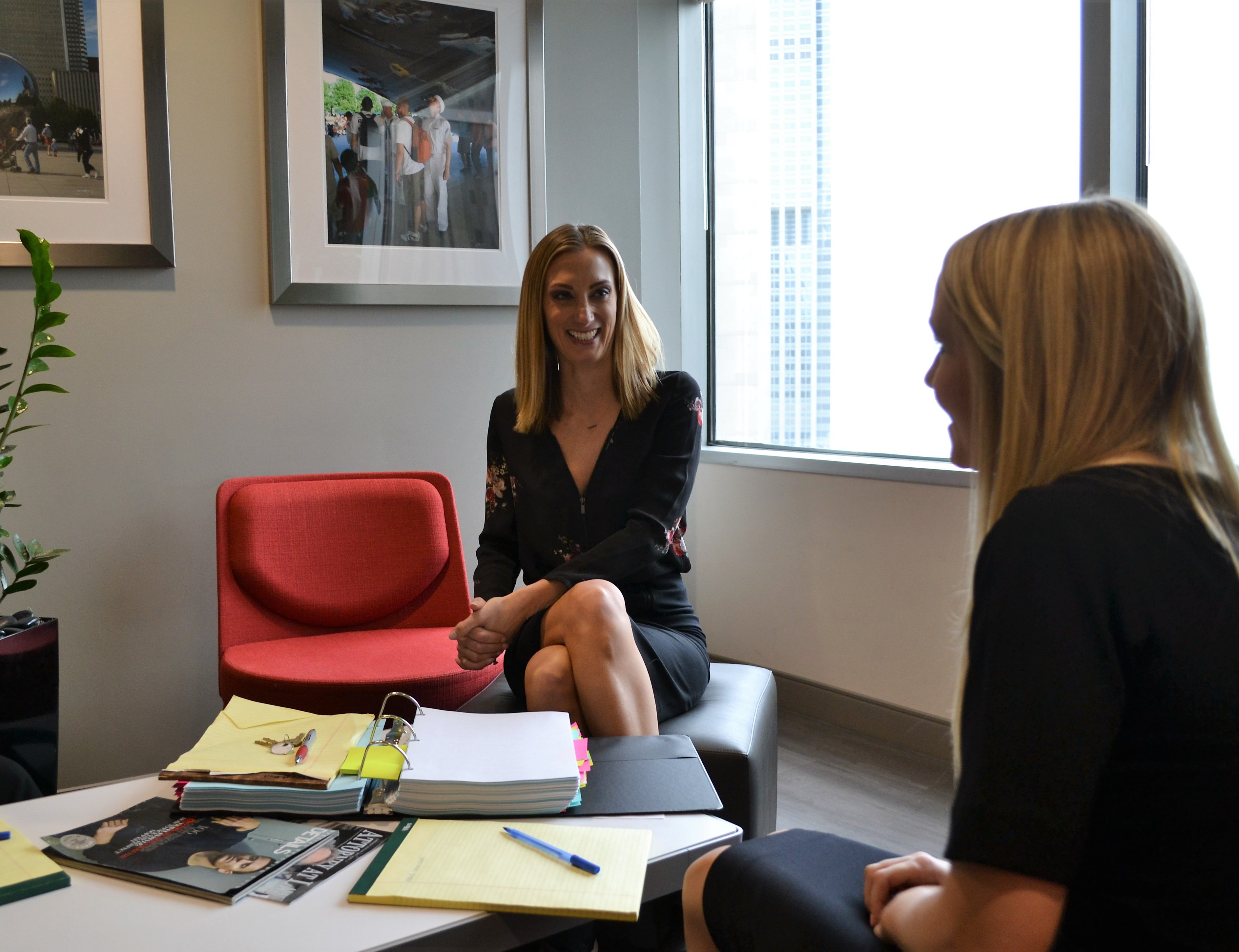
Mentoring can help you succeed and allow you to help others.
Women’s History Month was in March, and as a female practitioner, it’s a topic that’s usually in the forefront of my mind.
But whether it be in March or any other month, my focus will be on what I can do to continue to celebrate and promote the role of women in the legal profession.
One of the most powerful ways that women can support each other is to serve as mentors to other female attorneys.
I am proud and pleased to be “mentor-rich.” My array of mentors include trial attorney mentors, networking mentors, style mentors, judicial mentors and rainmaking mentors.
These women and men have been instrumental in guiding me through the first nine years of practice, allowing me to land in the wonderful place I am today.
Some of my mentors have played small but important roles in my life. And others have changed my life’s direction completely.
For example, as an undergraduate student, I was involved in the planning of an alumni Law Day.
One of the guests was an esteemed Chicago trademark attorney, and I was tasked to pick her up from the airport. I was mildly irritated at this prospect being that it cut into my … um … studying time, but I soldiered through the 90-minute drive to the airport to escort our prized speaker back to campus.
I was prepared to be miserable and suffer through dry, forced conversation until she was safely tucked away at the campus inn.
I could not have been more wrong.
To say the very least, we hit it off immediately. We chatted the entire time about my aspirations to be a lawyer, her experiences in the practice of law, including being in one of the first classes of women to graduate from her law school, and many other subjects.
The next day, we met again for lunch, and at the end, my new mentor asked me if I had considered applying to her law school alma mater, IIT Chicago-Kent College of Law.
I had not, but the next thing I knew, I was in Chicago staying with my mentor and visiting my future law school.
This wasn’t the only way that my mentor changed my life. Although recently retired, she continues to share her experiences as a practitioner, advice on how to handle tricky situations and support when I need a cheerleader.
Despite being one of the busiest attorneys I have ever met, this woman dedicated time and energy to me — a young woman from Ohio that she did not have any reason to help — and consequently changed my life.
We don’t have to be at the beginning of our careers to have a mentor, and we don’t have to be at or near the end to serve as one.
At all stages of our careers, we can use the support of another woman who shares our experience and love of the law.
Nor does mentorship have to be a time-consuming endeavor — some of my mentors and I have quick phone calls, e-mails or coffee when time permits, but I know they are there and I know they support me.
In turn, I have hired four female associates during my years leading my law firm.
I have served as a mentor to a woman through the Women’s Bar Association of Illinois, and I regularly accept coffee invitations from law students or attorneys looking to connect.
Although I know I am doing something good for the mentee, I also benefit from these exchanges because they invigorate me in my practice and remind me of why I started out on this path to begin with — because I wanted to make a difference.
In this digital age, when most human contact involves looking at a “newsfeed,” it’s understandable that most people feel disengaged and isolated.
Therefore, it’s important that we don’t allow the community we have built to fall prey to separation.
Women must continue to foster relationships that provide support, hope and transfer our knowledge and power so that the presence of law firm women leaders matches our presence in the legal field.
We are much more likely to succeed as friends than as detached individuals or, worse yet, foes.
I challenge you — whether you are a new attorney or 20 years out — to reach out to two other female attorneys: one that you would like to mentor and one that you would like to mentor you.
This blog was originally posted on ChicagoLawyerMagazine.com.



